
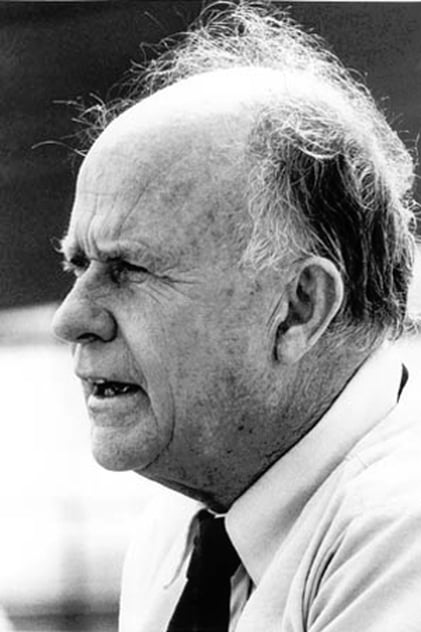
Jean Rouch
Born: May 31, 1917
Died: February 18, 2004
in Paris, France
Died: February 18, 2004
in Paris, France
From Wikipedia, the free encyclopedia
Jean Rouch (French: [ʁuʃ]; 31 May 1917, Paris – 18 February 2004, Niger) was a French filmmaker and anthropologist.
He is considered to be one of the founders of cinéma-vérité in France, which shared the aesthetics of the direct cinema. Rouch's practice as a filmmaker for over sixty years in Africa, was characterized by the idea of shared anthropology. Influenced by his discovery of surrealism in his early twenties, many of his films blur the line between fiction and documentary, creating a new style of ethnofiction. He was also hailed by the French New Wave as one of theirs. His seminal film Me a Black (Moi, un noir) pioneered the technique of jump cut popularized by Jean-Luc Godard. Godard said of Rouch in the Cahiers du Cinéma (Notebooks on Cinema) n°94 April 1959, "In charge of research for the Musée de l'Homme (French, "Museum of Man") Is there a better definition for a filmmaker?" Along his career, Rouch was no stranger to controversy.
Jean Rouch (French: [ʁuʃ]; 31 May 1917, Paris – 18 February 2004, Niger) was a French filmmaker and anthropologist.
He is considered to be one of the founders of cinéma-vérité in France, which shared the aesthetics of the direct cinema. Rouch's practice as a filmmaker for over sixty years in Africa, was characterized by the idea of shared anthropology. Influenced by his discovery of surrealism in his early twenties, many of his films blur the line between fiction and documentary, creating a new style of ethnofiction. He was also hailed by the French New Wave as one of theirs. His seminal film Me a Black (Moi, un noir) pioneered the technique of jump cut popularized by Jean-Luc Godard. Godard said of Rouch in the Cahiers du Cinéma (Notebooks on Cinema) n°94 April 1959, "In charge of research for the Musée de l'Homme (French, "Museum of Man") Is there a better definition for a filmmaker?" Along his career, Rouch was no stranger to controversy.
Movies for Jean Rouch...
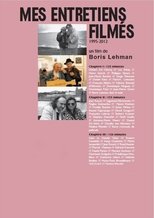
Title: My Conversations on Film
Character: Himself
Released: October 13, 2013
Type: Movie
This distinctly personal journey into the artistic possibilities of independent film is not to be missed. Jonas Mekas, Jean-Pierre Gorin, Robert Kramer and many other visionaries and mavericks of the silver screen – as well as a book seller, a critic and a psychoanalyst – discuss what cinema has meant to them, what it is and what it could be and, implicitly, how it has changed over the 18 years in which this film was shot. Director Boris Lehman leads the charge, drawing in moments of absurdist humour and inventive camera work; he keeps things raw and spontaneous. His encounters with the now much-missed Jean Rouch and Stephen Dwoskin are particularly touching and stand testament to their personal playfulness and candour. An engaging, absorbing, epic odyssey of a movie.


Title: Maya Deren, Take Zero
Character: Himself
Released: January 30, 2012
Type: Movie
This documentary interweaves celluloid and voice recordings by Maya Deren, and colleagues who knew her firsthand: Jean Rouch, Jonas Mekas, Alexander Hammid, Cecile Starr etc. Maya Deren (1917-1961) was an experimental filmmaker. In the 1940s and 1950s she made several influential avant-garde films, such as Meshes of the Afternoon (1943). Images from this and her other work are used in this documentary. You can also hear her voice, as well as accounts by contemporaries such as Jean Rouch and Jonas Mekas.

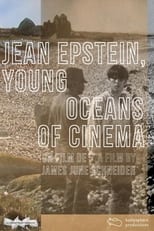
Title: Jean Epstein, Young Oceans of Cinema
Character: Self (archive footage)
Released: January 1, 2011
Type: Movie
This portrait of the French film theorist and avant-garde director Jean Epstein (1897-1953) concentrates on the period when he filmed in Brittany, the spot where he became inspired by the sea. Using rare archive footage, Jean Epstein, Young Oceans of Cinema also looks at Epstein’s views on the specificity of the film medium.

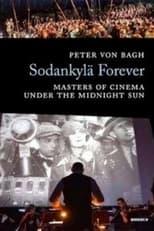
Title: Sodankylä Forever
Character: Self
Released: August 5, 2010
Type: Movie
The Midnight Sun Film Festival is held every June in the Finnish village of Sodankylä beyond the arctic circle — where the sun never sets. Founded by Aki and Mika Kaurismäki along with Anssi Mänttäri and Peter von Bagh in 1985, the festival has played host to an international who’s who of directors and each day begins with a two-hour discussion. To mark the festival’s silver anniversary, festival director Peter von Bagh edited together highlights from these dialogues to create an epic four-part choral history of cinema drawn from the anecdotes, insights, and wisdom of his all-star cast: Coppola, Fuller, Forman, Chabrol, Corman, Demy, Kieslowski, Kiarostami, Varda, Oliveira, Erice, Rouch, Gilliam, Jancso — and 64 more. Ranging across innumerable topics (war, censorship, movie stars, formative influences, America, neorealism) these voices, many now passed away, engage in a personal dialogue across the years that’s by turns charming, profound, hilarious and moving.

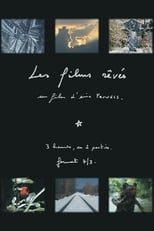
Title: The Dreamed Films
Character: Self
Released: March 18, 2010
Type: Movie
Belgian filmmaker Eric Pauwels' meditation on dream, travel and film.

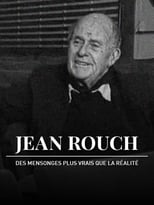
Title: Jean Rouch, des mensonges plus vrais que la réalité
Character: Lui-même
Released: March 5, 2004
Type: Movie

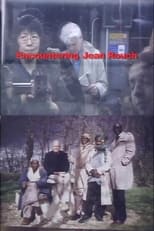
Title: Encountering Jean Rouch
Released: January 1, 2003
Type: Movie
This short film was shot in 2002 during Bilan du Film Ethnographic for the purpose of introducing Jean Rouch to the audience at 2003 Taiwan International Ethnographic film festival. Unexpectedly, Jean Rouch passed away in 2004. In this film Jean Rouch talked about his new marriage, his anger towards the moving of the artifacts of the Mankind Museum, his anarchistic nature, his dreams and fantasies, etc.


Title: Mon père c'est un lion - Jean Rouch pour mémoire
Character: Self
Released: January 1, 2002
Type: Movie

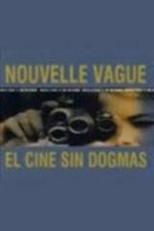
Title: Nouvelle Vague : El cine sin dogmas
Character: Self
Released: April 2, 2000
Type: Movie

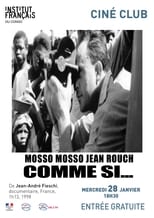
Title: Cinéma, de notre temps: Mosso, mosso (Jean Rouch comme si...)
Character: Himself
Released: August 11, 1999
Type: Movie

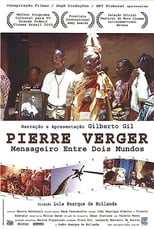
Title: Pierre Fatumbi Verger: Messenger Between Two Worlds
Character: Self
Released: December 31, 1998
Type: Movie
Inspired by the life of the french-born photographer and ethnographer, Pierre Verger, the movie follows his journey between Bahia, Brazil and Benin, Oriental Africa, showing places and people he met and his life study project: the Candomblé culture.


Title: Ciguri – Tarahumaras 98 - La Danse Du Peyotl
Character: Narrator
Released: January 1, 1998
Type: Movie
A documentary cycle involving the Rarámuri or Tarahumara people of Northern Mexico. This film addresses rites of winter as well as peyote and bakaka rites. Its commentary, read by Raymonde Carasco and Jean Rouch, is drawn from texts by Antonin Artaud.

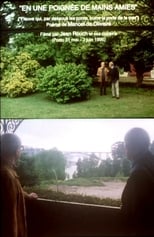
Title: A Friendly Handshake
Released: January 1, 1997
Type: Movie
From the bridges of Porto to its estuary, two men are paying tribute to the elegant Douro River. Through Luís de Camões and Prince Henry the Navigator, through its Viking ships and dizzying bridges, the Douro is a great witness to the history and culture of Portugal. Jean Rouch and Manoel de Oliveira are walking alongside while reciting a poem written by de Oliveira himself. During their walk, they reflect upon documentary-making, the charm of the river, and what it represents to them.

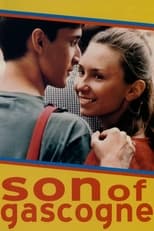
Title: Son of Gascogne
Character: Self
Released: February 18, 1995
Type: Movie
You're a provincial kid in Paris and suddenly you're the center of attention: Movie stars, famous directors and sexy women are doting on you because they all think you're the son of their long-dead legendary friend. You never knew your dad, but the facts of this famous guy's life suggest that he might have fathered you. Your mom tells you nothing. All the fuss makes you uncomfortable at first but soon you find it's rather fun to be the son of the famous Gascogne. And in the midst of it all you fall in love. It is, after all, springtime in Paris.


Title: Rouch in Reverse
Character: himself
Released: January 1, 1995
Type: Movie
Malian filmmaker and New York University professor, Manthia Diawara critiques visual anthropology through the work of Jean Rouch.


Title: Cinéma! Cinéma! The French New Wave
Character: Self
Released: June 18, 1992
Type: Movie
An intimate window into one of the great movements in film history that brought about an evolution in the art of cinema. The documentary portrays the movement with insight on the lives and works of Jean-Luc Godard, François Truffaut and other principal players in the New Wave.

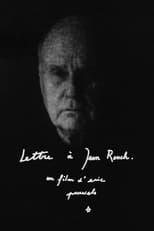
Title: Letter to Jean Rouch
Character: Himself
Released: January 1, 1992
Type: Movie
This film is a moving tribute to French filmmaker Jean Rouch. Pauwels, a former collaborator of Rouch, accompanies him on a trip to Japan. In this cinematic letter, which he himself calls “a journey into the memory”, Pauwels philosophises about the essence of cinema and, consequently, of life.

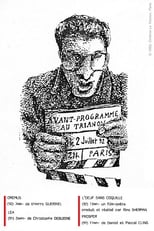
Title: An Egg with No Shell
Released: January 1, 1992
Type: Movie
A male diva sings in a countertenor voice while massacring chickens brought to him by his butler, Jean Rouch, until a slave provides proof of his love for the chicken, which he has tucked under his arm. A film-opera based on a poem and musical theme by Rina Sherman.


Title: Jean Rouch: First Film 1947-1991
Character: Himself
Released: February 26, 1991
Type: Movie
The first film in Jean Rouch's filmography is not his first film at all. It was edited by a French news company, using images he had shot but organised into a very different sequence from his own. On top of that, it was accompanied by a colonialist commentary said by a sports reporter! As we watch, Jean Rouch ad-libs a new commentary more in keeping with his images, and so, in 1991, he finally finishes his first film! - Dominique Dubosc

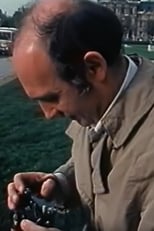
Title: Ciné-Portrait of Raymond Depardon
Character: himself
Released: January 1, 1983
Type: Movie
A fortuitous meeting, late one afternoon, in the garden of the Tuileries, of one or two cameras, a tape recorder, and three cameramen/directors, Raymond Depardon, Jean Rouch, and Philippe Costantini.


Title: Ciné-mafia
Released: July 9, 1980
Type: Movie
Three pioneers of documentary filmmaking – Joris Ivens, Henri Storck, and the man behind the camera, Jean Rouch – recall the early days of the documentary genre and speak about their creative methods and sources of inspiration. This lively discussion between the directors is shot in cinéma vérité style and spliced with footage from their older films.


Title: Cinématon
Character: N°1256
Released: December 20, 1978
Type: Movie
Cinématon is a 156-hour long experimental film by French director Gérard Courant. It was the longest film ever released until 2011. Composed over 36 years from 1978 until 2006, it consists of a series of over 2,821 silent vignettes (cinématons), each 3 minutes and 25 seconds long, of various celebrities, artists, journalists and friends of the director, each doing whatever they want for the allotted time. Subjects of the film include directors Barbet Schroeder, Nagisa Oshima, Volker Schlöndorff, Ken Loach, Benjamin Cuq, Youssef Chahine, Wim Wenders, Joseph Losey, Jean-Luc Godard, Samuel Fuller and Terry Gilliam, chess grandmaster Joël Lautier, and actors Roberto Benigni, Stéphane Audran, Julie Delpy and Lesley Chatterley. Gilliam is featured eating a 100-franc note, while Fuller smokes a cigar. Courant's favourite subject was a 7-month-old baby. The film was screened in its then-entirety in Avignon in November 2009 and was screened in Redondo Beach, CA on April 9, 2010.

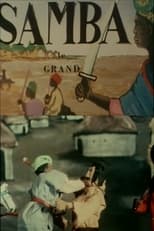
Title: Samba the Great
Character: Narrator
Released: March 26, 1977
Type: Movie
The adventures of a legendary hero who, dazzled by the beauty of a princess in the hand asks. This imposes several trials he emerges victorious. Only death will eventually bring the two young men.

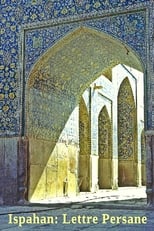
Title: Ispahan: A Persian Letter (The Chah Mosque at Ispahan)
Character: Lui-même
Released: March 1, 1977
Type: Movie
Jean Rouch’s camera follows his friend, filmmaker/actor/critic Farrokh Ghaffari, as he walks and talks us through the famous Shah Mosque in Esfehan. While guiding him and answering his questions, Ghaffari makes Rouch discover the beauties of the architecture of the mosque and its impact on the city. Throughout the tour, they discuss Islam’s complex relationship with death, sex and cinema.




Title: Civilisation: L'homme et les images
Released: January 1, 1967
Type: Movie
Collective contribution to a history of cinema, this issue of the “Civilisations” collection also takes part in the genesis of Deux ou trois choses que je sais d'elle and La Chinoise

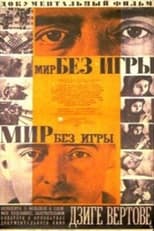
Title: World Without a Game
Character: Himself
Released: May 29, 1966
Type: Movie
Documentary portrait of Dziga Vertov, father of documentary cinema.

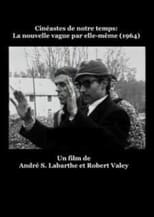
Title: La Nouvelle Vague par elle-même
Character: Self
Released: May 19, 1964
Type: Movie
Made for Cinéastes de notre temps series. In 1964, several French New Wave auteurs discuss the success and crisis of the wave. Featuring Claude Chabrol, François Truffaut, Jacques Rivette, Jean-Luc Godard, Jacques Rozier, Jacques Demy, Agnès Varda, Jean Rouch, and many others.

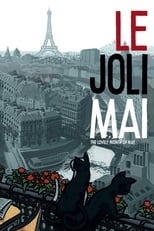
Title: The Lovely Month of May
Character: Self (uncredited)
Released: May 1, 1963
Type: Movie
Candid interviews of ordinary people on the meaning of happiness, an often amorphous and inarticulable notion that evokes more basic and fundamentally egalitarian ideals of self-betterment, prosperity, tolerance, economic opportunity, and freedom.

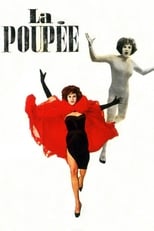
Title: The Doll
Released: November 7, 1962
Type: Movie
An avant-garde political satire that takes place in a mythical country in South America. The dictator has been replaced by a look-alike revolutionary, and the dictator's wife has been replaced by a robot.

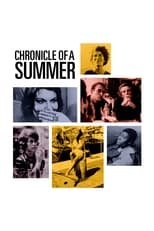
Title: Chronicle of a Summer
Character: Self
Released: October 20, 1961
Type: Movie
Paris, summer 1960. Anthropologist and filmmaker Jean Rouch and sociologist and film critic Edgar Morin wander through the crowded streets asking passersby how they cope with life's misfortunes.

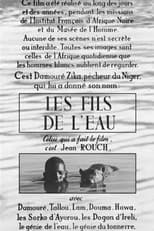
Title: Les Fils de l'eau
Released: December 10, 1959
Type: Movie
A compilation of black and white excerpts from five previous color films by Jean Rouch: Yenendi, the Rainmakers, Cemeteries in the Cliff, The Millet People, The Circumcision, Battle on the Great River.

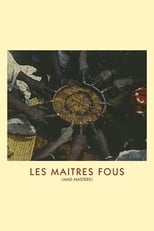
Title: The Mad Masters
Character: Narrator
Released: August 24, 1955
Type: Movie
The subject of the film was the Hauka movement. The Hauka movement consisted of mimicry and dancing to become possessed by French Colonial administrators. The participants performed the same elaborate military ceremonies of their colonial occupiers, but in more of a trance than true recreation.

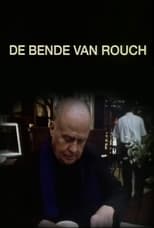
Title: Rouch's Gang
Character: Self
Released: December 31, 1969
Type: Movie
The documentary Rouch's Gang follows the film crew and provides a glimpse behind the scenes as Jean Rouch and his four friends from Niger make their film.
